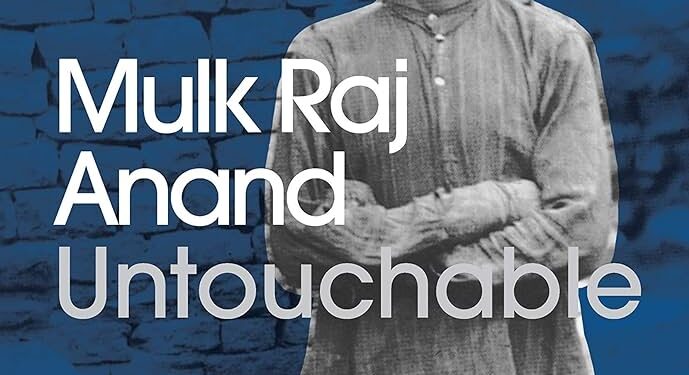What is the main theme of Untouchable?,What are the themes of Mulk Raj Anand novels?,Who are the main characters of untouchable?,What are the main characteristics of the novel of Mulk Raj Anand?,Untouchable written by Mulk Raj Anand and first published in 1935, unfolds a poignant narrative set in early 20th-century India. The story delves into the harsh experiences of Bakha, an untouchable, the lowest caste in the Hindu social hierarchy, compelled to work as a sweeper, a degrading occupation involving the cleaning of human waste.
Untouchable Summary:
Bakha, the introspective protagonist, navigates the town of Bulashah, experiencing daily discrimination despite his athletic prowess. The novel spans a single day, offering a glimpse into Bakha’s challenges and humiliations. The narrative sheds light on the dehumanizing nature of Bakha’s job and the pervasive societal attitudes that perpetuate the oppression faced by the Dalits. Bakha’s desire for education becomes a symbolic representation of the Dalit community’s aspiration for social upliftment.
Also Read-
- What is the summary of clear light of day
- The Seizure of the Cyprus Summary and Themes
- The Second Shepherds Play Summary and Themes
Encountering various characters during his work, Bakha faces both perpetuation and challenges to caste-based discrimination. The novel critically examines the caste system and untouchability, revealing the hypocrisy and cruelty embedded in the social structure. Bakha’s quest for education and self-improvement symbolizes the Dalit community’s collective yearning for social justice.
The novel takes a critical stance against the caste system, untouchability, and the impact of British colonialism. Bakha’s accidental touch of a high-caste man triggers a violent confrontation, catalyzing his growing awareness of injustice and the necessity for social reform.
As the day unfolds, Bakha grapples with his identity and the harsh reality of untouchability. The story concludes with Bakha’s awakening to the need for social change and his determination to challenge oppressive norms.
Untouchable Themes:
Caste Discrimination: The novel is a powerful exploration of the oppressive caste system in India. It vividly depicts the dehumanizing effects of untouchability and the societal attitudes that perpetuate discrimination against the Dalit community.
Individual vs. Society: The tension between individual aspirations and societal expectations is a central theme. Bakha’s struggles reflect the broader conflict between personal desires for self-improvement and societal norms that dictate his lower status.
Colonialism: The impact of British colonial rule in India is a significant theme. While colonialism disrupts traditional norms, it also exposes the limitations and prejudices ingrained in the colonial administration.
Social Awakening: Bakha’s journey throughout the novel symbolizes a process of awakening to the harsh realities of his existence. The narrative suggests that awareness and resistance are crucial for challenging and dismantling oppressive social structures.
Human Dignity: The novel advocates for the recognition of human dignity irrespective of caste. Bakha’s desire for education and self-improvement becomes a symbolic quest for reclaiming his inherent humanity and challenging the degrading practices he is subjected to.
Symbolism of Touch: The accidental touch that triggers a violent confrontation becomes a symbolic motif. It represents the boundaries and restrictions placed on Bakha due to his caste and serves as a catalyst for his growing awareness of injustice.
Social Reform: An overarching theme is the need for social reform. The novel serves as a call to action, urging society to confront and address the deep-rooted inequalities and discriminatory practices that persist.
Intersectionality of Oppression: The narrative delves into the intersecting forms of oppression faced by Bakha as an untouchable. It explores how caste discrimination intersects with issues of poverty, education, and social status.
Aspiration for Education: Bakha’s yearning for education becomes a recurring theme, symbolizing the aspirations of the Dalit community for intellectual and social upliftment. It reflects the broader struggle for equal access to opportunities.
Resistance and Defiance: The novel highlights instances of resistance and defiance against the oppressive norms. Bakha’s growing awareness leads to a determination to challenge the status quo and strive for change.Unt













